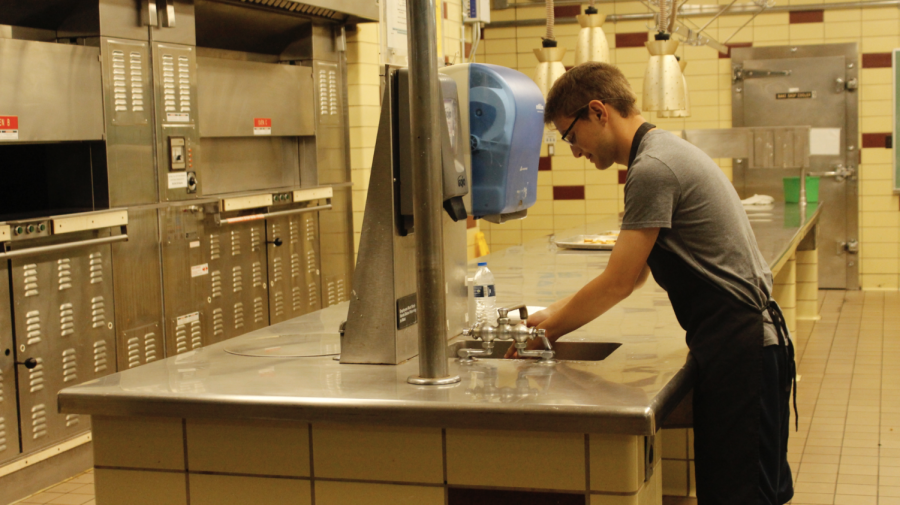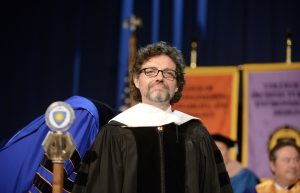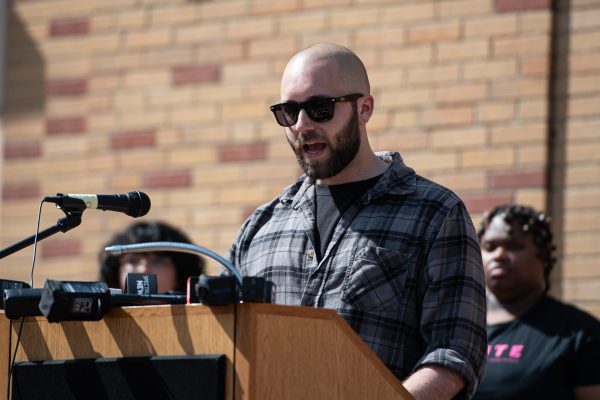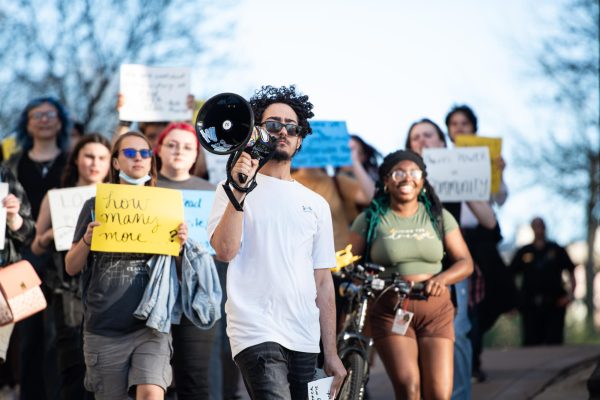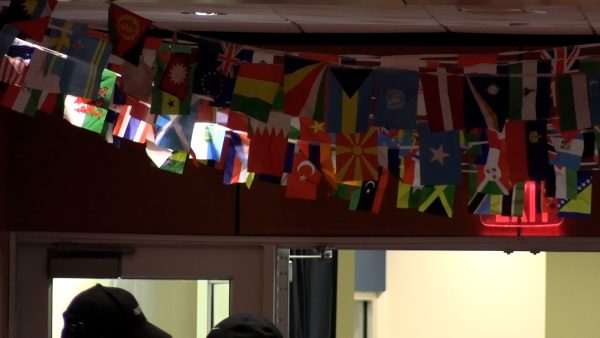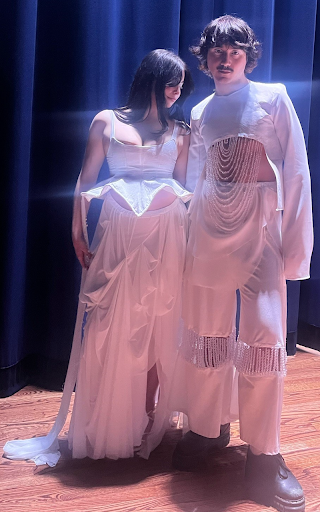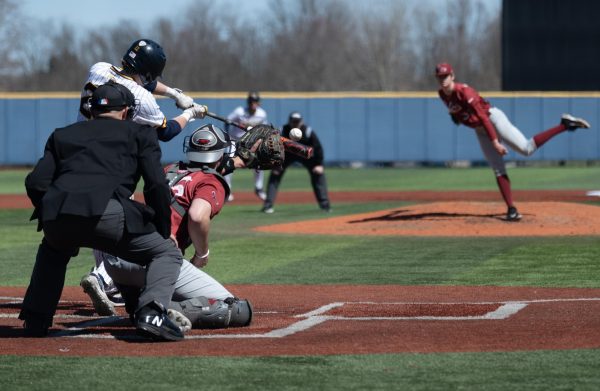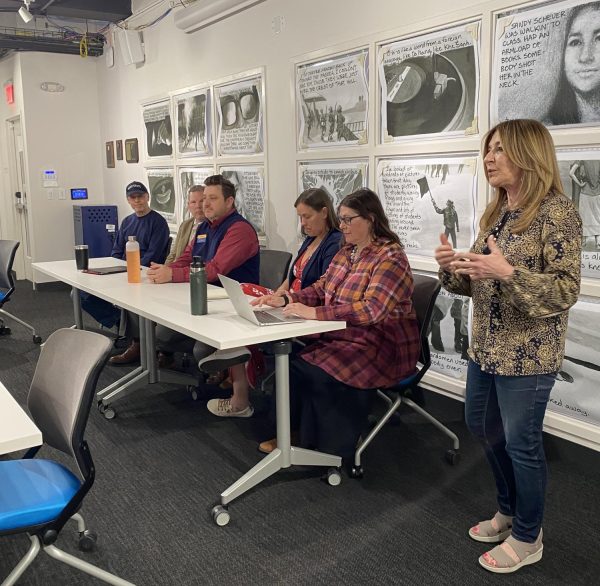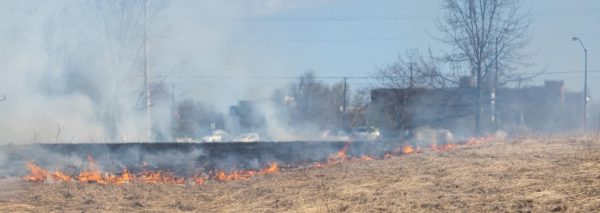Cooking with Career and Community Studies
December 3, 2019
On the first day of the fall semester, a large handful of students walked into White Hall to learn about self-determination. That group was just starting their journey as Career and Community Studies students.
Career and Community Studies, or CCS, is a four year non-degree program that provides students who have intellectual and developmental disabilities with independent living skills, a strong college experience and confidence to problem-solve in new adult roles.
Danielle Manring, instructor for CCS’s program, has been involved with CCS since her sophomore year at Kent State. After graduating in 2017, Manring went on to become a graduate assistant for a year and is now experiencing her first semester as an adjunct teaching faculty.
Food lab, as CCS students call it, is when students in the hospitality management major attend Food Techniques class with the CCS students in a collaborative setting. Hospitality management majors receive credit for the course as it aligns with their requirements, while CCS students receive hands-on life skills for their class.
“When you compare these students from their first semester to the semester before they graduate, it’s night and day,” Manring said. “Those students can handle problems, they don’t break down at the sight of a problem but instead they identify a problem, figure it out, finish it and then they come and tell us about it.”
On Wednesdays during the first half of the fall semester, students from both programs met from 12:45 to 4 p.m. at the Campus Kitchen. Chef Andrew Eith taught students about knife skills, food safety and the use of kitchen appliances.
“They arrive to the campus kitchen and put on their hair nets and aprons and they wash their hands,” Manring said. “They start cooking with groups and they use regular kitchen equipment: oven, stoves, knives.”
Freshly seared steaks are just one of the many foods that CCS students, along with hospitality management students, have created together.
Eith, who graduated from the Culinary Institute of America in 2006, has worked in a variety of hospitality management settings.
“I’ve worked in hotels, hospitals and universities which is what brought me to Kent State,” Eith said.
Along the way of learning practical skills, CCS students formed friendships with the hospitality management students. The students said the inclusive environment provided a place where all types of people can feel comfortable.
“It’s good because I’ll be nice to them,” Wilson Duda, a freshman in CCS, said. “And they’ll be nice to me.”
Outside of food lab, every CCS student has their own ways of making their college experience meaningful. Some CCS students live on-campus, while others commute.
Each student seems to have favorite hang-out spots they congregate towards. Duda said his friends enjoy hanging out at the rec center and the library. Mason Scherer, another freshman in CCS, said his favorite place to eat is at Subway in the student center.
Scherer shared his enthusiasm for making new friends. He invites students who are looking for a new friend to come knock on his door at Manchester Hall.
“I’d tell them to knock on the door and exchange phone numbers,” he said.
Both Manring and Eith can agree that the collaboration between the two classes is a win-win situation.
“Our students get inclusion. For the culinary arts students, they’re working alongside students with disabilities,” Manring said. “When they watch my students succeed or try their hardest to do something, it’s opening their mind to what people can actually do.”
Manring went on to emphasize that culinary arts students need to be able to work with a diverse population.
“This population can successfully do many things,” she said. “Especially if you give them the right environment to succeed.”
Contact Linden Miller at [email protected].


